In today’s rapidly evolving world, safeguarding our homes has never been more crucial. Home security systems are not merely about preventing theft; they form a critical component of comprehensive risk management strategies. By integrating advanced technology and thoughtful planning, homeowners can significantly mitigate various risks, ensuring safety and peace of mind.
Understanding Risk Management in Home Security
Risk management involves identifying, assessing, and prioritizing risks, followed by coordinated efforts to minimize, monitor, and control the probability or impact of unfortunate events. When it comes to home security, this means protecting against potential threats such as burglaries, natural disasters, and even cyber-attacks.
Identifying Potential Threats
The first step in any risk management strategy is to identify potential threats. For homeowners, these can range from break-ins and vandalism to fire hazards and water damage. By recognizing these threats, one can devise targeted strategies to address them.
Assessing Vulnerabilities
Once potential threats are identified, the next step is to assess the vulnerabilities of your home. This involves examining all entry points, evaluating the current security measures, and identifying any weak spots that could be exploited by intruders or other risks.
Implementing Security Measures
After identifying and assessing risks, the implementation of robust security measures is crucial. This can include installing alarm systems, surveillance cameras, and smart locks, as well as incorporating environmental sensors that detect smoke, carbon monoxide, or flooding.
The Components of a Comprehensive Home Security System
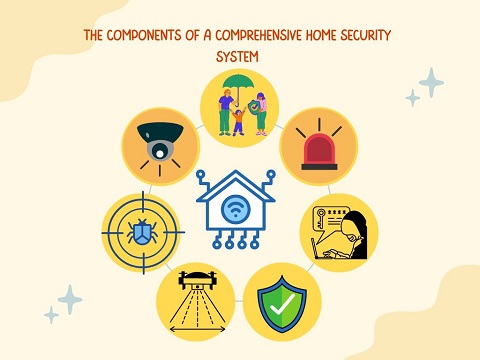
A modern home security system is an amalgamation of various technologies working together to provide a multi-layered defense against threats. Here are the key components:
Alarm Systems
Alarm systems are the frontline defense against intrusions. They are designed to alert homeowners and authorities immediately upon detecting unauthorized entry. Advanced alarm systems now integrate with smart home technology, offering remote monitoring and control through smartphones and other devices.
Surveillance Cameras
Surveillance cameras are indispensable for both deterrence and evidence collection. High-definition cameras with night vision and motion detection capabilities provide real-time monitoring and can store footage for later review. Some systems also offer facial recognition and AI-driven analytics to enhance security measures.
Smart Locks and Access Control
Smart locks replace traditional keys with electronic access control, allowing homeowners to lock and unlock doors remotely. This technology also provides detailed logs of who enters and exits the home, which is particularly useful for tracking and monitoring access.
Environmental Sensors
In addition to protecting against intruders, a comprehensive home security system should include sensors for environmental hazards. Smoke detectors, carbon monoxide detectors, and water sensors can alert homeowners to fires, gas leaks, or flooding, enabling quick action to prevent significant damage.
The Role of Home Security in Risk Mitigation
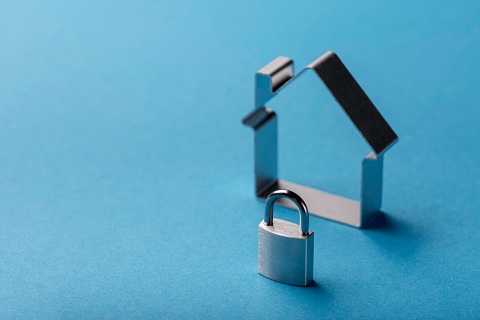
Home security systems are a pivotal part of a broader risk management strategy. Here’s how they contribute to mitigating various risks:
Deterrence of Criminal Activity
Visible security measures such as cameras and alarm systems serve as powerful deterrents to potential intruders. The presence of these systems can reduce the likelihood of attempted break-ins, thus lowering the risk of theft and property damage.
Rapid Response to Emergencies
Modern security systems are connected to monitoring services that can alert emergency responders within seconds of an alarm being triggered. This rapid response capability is crucial in minimizing the impact of burglaries, fires, or medical emergencies.
Insurance Benefits
Many insurance companies offer discounts on homeowners’ insurance premiums for properties equipped with security systems. This not only helps in managing the financial risk associated with potential claims but also underscores the value of proactive risk management.
Peace of Mind
Perhaps one of the most significant benefits of a home security system is the peace of mind it provides. Knowing that your home is protected allows you to focus on other aspects of life without constantly worrying about the safety of your loved ones and property.
Advancements in Home Security Technology
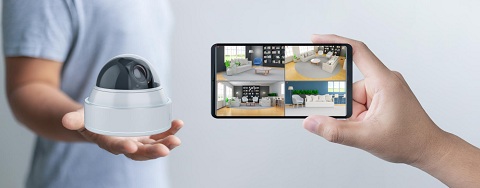
The field of home security is continually evolving, with new technologies enhancing the effectiveness of risk management strategies. Here are some notable advancements:
Artificial Intelligence and Machine Learning
AI and machine learning are revolutionizing home security. These technologies enable systems to learn and adapt, improving their ability to detect and respond to unusual activities. AI-driven analytics can distinguish between normal and suspicious behavior, reducing false alarms and increasing overall security.
Smart Home Integration
Integration with smart home devices allows for a more seamless and comprehensive security solution. From smart lights that simulate occupancy to thermostats that respond to smoke detectors, the synergy between home automation and security systems enhances protection and convenience.
Cybersecurity Measures
As home security systems become more connected, they also become more vulnerable to cyber threats. Modern systems now incorporate robust cybersecurity measures to protect against hacking and ensure the integrity of the security infrastructure.
FAQs About Your Home a Risk Management Strategy
The main components typically include motion sensors, door and window sensors, security cameras, alarms, and control panels.
Many insurance companies offer discounts on premiums for homes with security systems, as they reduce the risk of theft and damage.
Yes, modern systems can include smoke detectors, carbon monoxide detectors, and flood sensors, offering protection against non-criminal threats.
Consider factors like your specific security needs, the features of the system, cost, reliability, and whether you prefer professional installation or a DIY approach.
Yes, the use of security cameras and monitoring systems can raise privacy concerns, especially regarding who has access to the footage and how it is stored.
Conclusion
Incorporating a security system into your home is not just about preventing burglaries; it is a crucial component of a comprehensive risk management strategy. By identifying potential threats, assessing vulnerabilities, and implementing advanced security measures, homeowners can effectively mitigate risks and protect their property and loved ones. The ongoing advancements in security technology only enhance these capabilities, making home security an indispensable element of modern risk management.


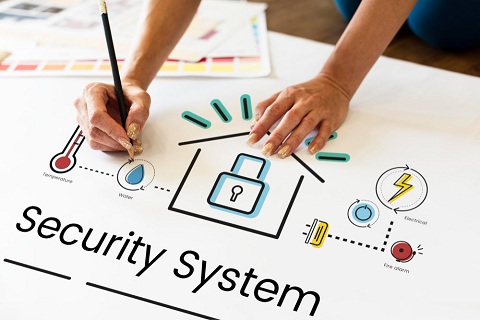
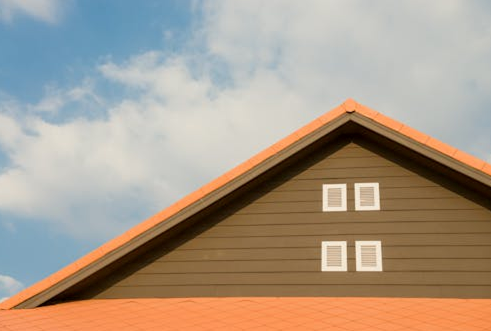








Find Us on Socials